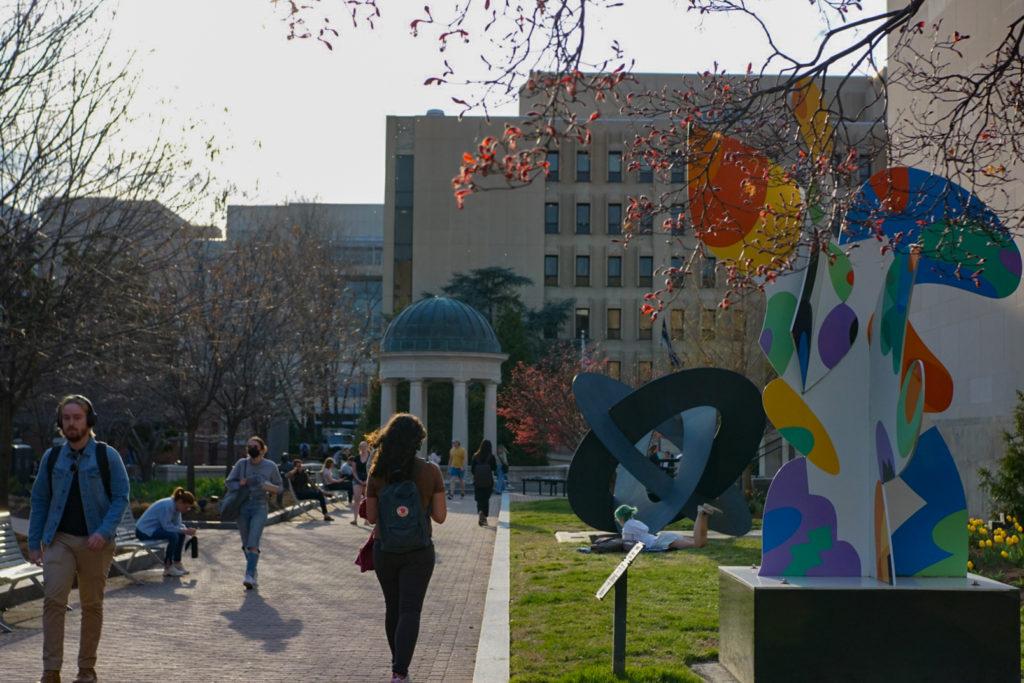The rate of faculty retirements has slowed since before the COVID-19 pandemic, according to institutional data.
Officials said 36 faculty retired since the start of the 2019-20 academic year, and 53 faculty retired between the 2016-2019 academic years, the three years before the pandemic. Experts said the 32 percent drop can be attributed to a widespread urge among employees to maintain economic stability in the face of economic uncertainty of the COVID-19 pandemic.
Provost Chris Bracey said the decline in faculty retirements came alongside a hiring freeze and other budget mitigation efforts, which slowed part-time faculty hiring efforts throughout the pandemic. He said officials restored regular faculty hiring this academic year in response to the new faculty retirements as the University exits pandemic budget cutbacks.
“We need to continue to invest in high-performing faculty, who are our greatest asset and who are the engine that drives this University forward,” he said. “The fundamental goal of our academic enterprise remains to ensure that we have a world-class faculty prepared to push the frontiers of knowledge through the production and dissemination of high quality research.”
Henry Nau, a professor emeritus of international affairs, said he officially retired during the previous academic year after announcing his retirement in 2018 and more than 45 years at GW and three years as a top adviser in the White House for former President Ronald Reagan. He said officials treated him well throughout the course of his retirement, with regular communication.
He said officials should be respectful to all professors during retirement.
“So that’s something to keep in mind when you’re thinking about future administration,” he said. “You want it to be people who get around, get to know people who are ready to treat people as individuals rather than simply as sort of numbers.”
Bracey declined to say why the number of faculty retirements at GW changed in recent years.
Experts in higher education said the uncertainty of the pandemic helped reduce the number of retirements because full-time faculty are offered guaranteed income and health insurance, which they were not guaranteed access to if they retired.
Joseph Paris, an assistant professor of higher education at Temple University, said the decline in retirements is part of a larger trend across the United States where the economic uncertainty of the pandemic led employees to continue working instead of retiring.
Paris said professors were expected to retire during the pandemic as a way to opt out of continuing their careers with online teaching, but health care insurance and guaranteed income for full-time faculty helped retain them throughout the pandemic, when economic futures were unknown.
Paris added that new faculty retirements can allow officials to target-hire diverse faculty, which can advance strategic planning initiatives to diversify the University community.
“One of the important conversations happening within higher education is the diversification of the student body, and thus there’s a need to have requisite diversification of the faculty – the individuals who are teaching and working alongside students,” he said.
Officials said they would push to “cluster hire” minority faculty “primarily” in the Columbian College of Arts and Sciences last academic year. The commitment came after more than 1,000 University community members signed a petition urging GW to hire more professors from historically underrepresented communities and bolster funding for the Africana studies program.
CCAS implemented the inclusive excellence initiative last summer to target-hire minority faculty from historically marginalized backgrounds to teach in subjects like criminology, race and mental health inequities.
Michael Hayes, an associate professor of employment law at the University of Baltimore, said private universities rarely offer pensions for their faculty, which might discourage older faculty members from retiring. He said the pandemic’s effect on the economy ate into many employees’ retirement savings, making financial safety nets like pensions more valuable.
“You get whatever’s in your retirement account,” Hayes said. “That’s all you get. And right now, people are worried that another large percentage of that might get wiped out in the next year, two years, four years or whatever.”
Hayes said private university officials cut pensions because of declining enrollment – a trend that has impacted GW and other higher education institutions in recent years. University enrollment is in the midst of a multi-year decline precipitated by the now-obsolete 20/30 plan.
“When there’s ‘boom’ times, they wanted a lot of faculty and hired a lot of faculty, and the faculty taught, and people paid tuition, everybody was happy, but now with declining enrollment in a lot of departments, a lot of areas, they’re stuck,” Hayes said. “And so they stopped offering pensions.”
He said buying annuities – long-term investment plans issued by insurance companies to ensure retired individuals don’t outlive their savings – is one way to get people to retire when pensions aren’t available to provide financial security.
“The second best thing would be to buy annuities, really good annuities, and subsidize the annuities,” Hayes said. “It’s not just what’s in the account if they really want people to retire, that’s what they would have to do.”








